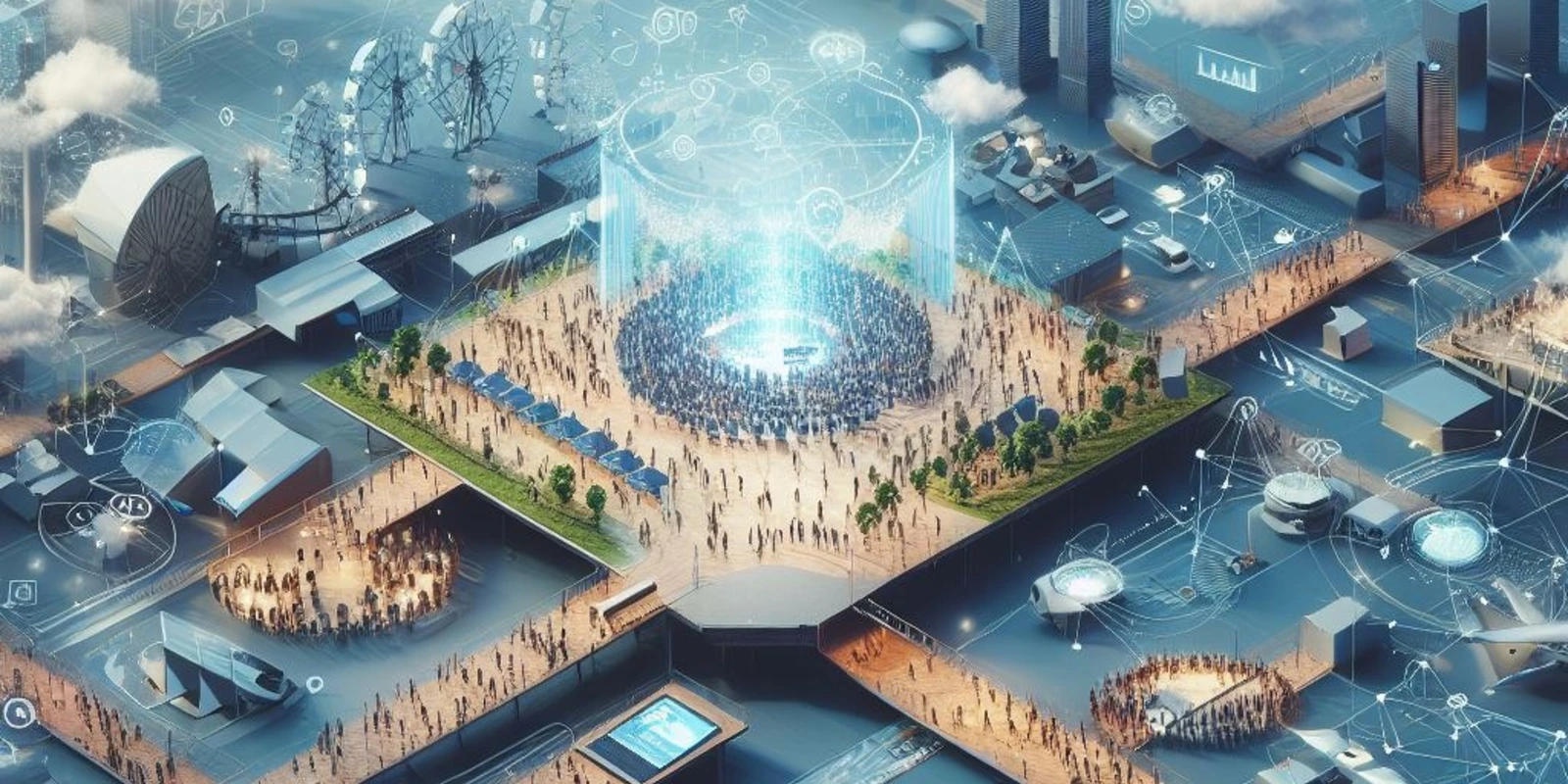
Bridging Physical and Digital: Transformation in Event Management

Event management, a traditionally physical realm, is undergoing a massive shift as digital transformation redefines how events are conceptualized, executed, and experienced. This shift isn't just about moving events online but integrating digital tools and technologies to enhance physical events and create hybrid experiences that merge the best of both worlds.
The Rise of Hybrid Events: One of the most significant advancements in event management is the emergence of hybrid events. These events combine in-person attendance with virtual participation, allowing for a broader audience reach. Platforms like Zoom and Microsoft Teams have become essential tools in hosting these hybrid experiences.
![]() Find "Microsoft Teams" on Apple Itunes
Find "Microsoft Teams" on Apple Itunes
Augmented and Virtual Reality: Augmented Reality (AR) and Virtual Reality (VR) are no longer futuristic concepts but tangible tools that event planners are integrating into their strategies. Whether it's a virtual trade show booth or an AR-enhanced product demonstration, these technologies offer attendees immersive experiences that were previously unimaginable.
Event Analytics and Data: Digital transformation also brings forth the power of data. Event management platforms can now offer real-time analytics, from attendee engagement metrics to feedback collection. This data-driven approach allows organizers to tailor their events more effectively and achieve desired outcomes.
Personalized Attendee Experiences: With the integration of AI and machine learning, events can now offer personalized schedules, recommendations, and interactions for attendees. Think of it as a Netflix recommendation, but for event sessions and booths!
![]() Find "Eventbrite" on Play Store
Find "Eventbrite" on Play Store
Environmental Sustainability: Digital transformation is also paving the way for greener events. By minimizing the need for physical materials and reducing travel, virtual components can significantly reduce an event's carbon footprint.
Conclusion: The world of event management is at the cusp of an exciting era. As digital and physical realms intertwine, the opportunities for innovation are limitless. While the tools and technologies will continue to evolve, one thing is clear: the future of event management is a harmonious blend of the tangible and the virtual, offering unparalleled experiences for attendees worldwide.







Your insights and experiences enrich our community. Dive into the discussion and share your thoughts with us below!